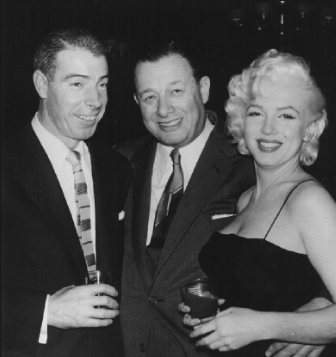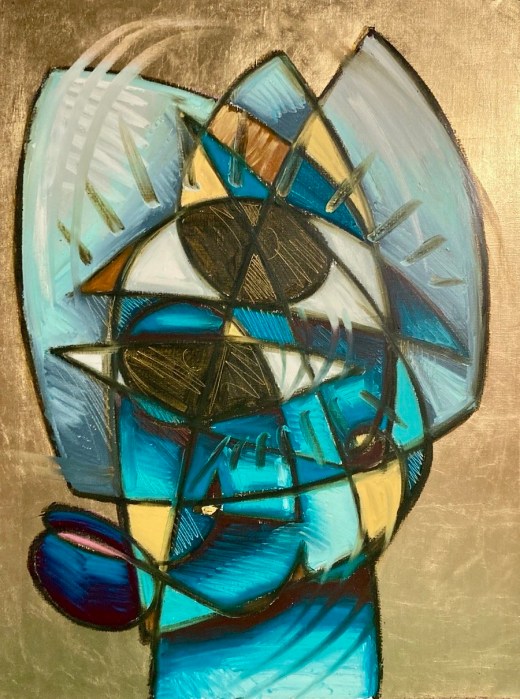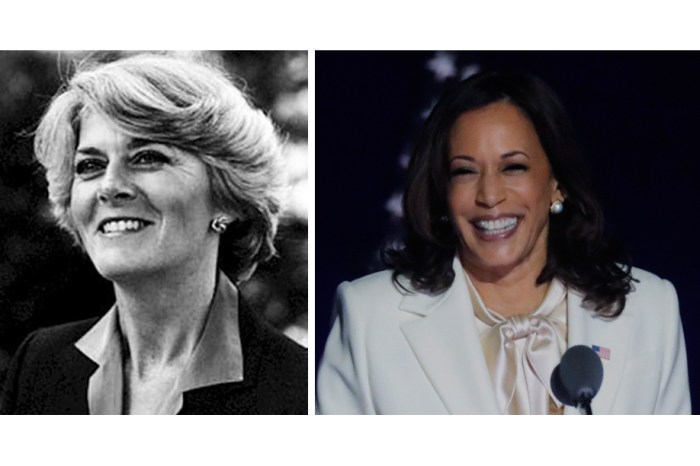By Jerry Tallmer
It was a different time. DiMaggio and Sinatra and Jackie Gleason and Frank Costello more or less divided the world between them. You still had 11 daily newspapers in this town. Sportswriters made as much as the ballplayers they wrote about. Booze, not drugs, was the diversion of choice. The music was something you could sing in your head, or savor on the radio.
“People lived short happy lives in those days,” a writer named Gay Talese tells us as the camera goes to a Manhattan sidewalk where a very large man — a “great whale of a man” with a face like a huge old galosh — cheerfully recalls how he once disposed of all the money he had in this world. “Reached in my pocket, pulled out a quarter, a dime, and a nickel, and threw the whole 40 cents across the street.” Then he opened the doors of his new joint.
His name was Toots Shor. For 30 years, first at 51 West 51st Street, later on 52nd Street, he ran a saloon called — what else? — Toots Shor’s, where he reigned nightly as host, fellow drinker, and hearty friend (“palship,” it was called) of presidents, Supreme Court justices, mobsters, actors, athletes (especially athletes), singers, socialites, millionaires, newsguys, and just plain people. Well, not quite plain.
He went broke two or three times, lost a couple of his places, mostly through gambling — lost $100,000 betting on Billy Conn over Joe Louis in 1941, when $100,000 was real money — and in the end lost everything to the IRS, including his and his wife’s 12-room Park Avenue apartment, for a lousy $129,000 in back taxes.
“I don’t think he gave a shit” (about being in or out of the money) is artist LeRoy Neiman’s guess.
And yet …
“I’m in tough shape,” we hear the lifelong optimist bleakly say to Columbia University oral historian Edward Robb Ellis in the course of a scratchy eight-hour interview and audiotape made in Shor’s last sad digs, the Drake Hotel, two years before his death at 73 in 1977.
It is this invaluable audiotape that’s the backbone of a great-hearted juice-of-life 90-minute documentary (for want of a better word) opening Friday at the Quad, the Chelsea Clearview, and the theater known as First-and-62nd. It’s titled — what else? — “Toots.”
Produced and directed by his sprightly granddaughter, Kristi Jacobson, who was 6 whenthe cancer took him, it’s a labor of love in more ways than one, to be exact, thirty-something ways, hers and the thoughts and memories of the 30 or so individuals she rounded up before the camera — writers and ballplayers mostly — who knew Toots and had fine, funny, serious things to say about him and the era he stood for.
“Dago, get over here right away,” is columnist Sidney Zion’s recollection of a Toots directive to Frank Sinatra (who more than once bailed Shor out of hock, unsolicited, with a check for maybe $50,000).
Born to the only Jewish couple in an Irish-Italian neighborhood of South Philadelphia in 1903, Bernard (“Toots”) Shor was a streetfighter who, says Zion, “didn’t take orders from anybody … Could belt you right out, had a very good left hook.”
When Toots was 15 his mother was killed by a runaway automobile as she sat on the stoop of her apartment house; five years later Toots’s grieving, Orthodox father killed himself. The son made his way to New York in 1930 — “a kid on a hustle” — and went to work as an “inside” bouncer at speakeasies like the 5 O’Clock Club.
“Jiminy Cricket!” was this hulking slugger’s habitual euphemistic exclamation; at least we hear and see him saying it at intervals, three of them I think, in the archival and/or home-movie footage rounded up by Ms. Jacobson. His favorite derogation, with fondness or with spleen, was “You crumbum.”
The archival material also includes such contradictory reflections as Edward R. Murrow informing his subject and the TV-watching world that some people find Toots “as phony as a $3 bill”; entrepreneur Bill Fugazy saying of his great and good pal: “If he didn’t like you, God pity you”; music’s Peter Duchin calling Toots “a sweet soft caring guy”; Toots himself telling Mike Wallace: “I believe I’m never wrong”; Toots squeaking and grunting to try to outwit the “What’s My Line?” panel and being immediately spotted by (of course) the sharp-witted blindfolded Dorothy Kilgallen.
The people who really loved Toots best, I guess, as well they should because of his love for them, were the football greats of the era like Frank Gifford and the baseball greats like DiMaggio, Whitey Ford, Yogi Berra.
Gifford, who was dealt a massive concussion in 1960 via a blindside killer tackle by Chuck Bednarik of the Philadelphia Eagles — we see it on the screen — stoically yet movingly talks about how Toots talked him out of early retirement and back into the sport again.
Joe DiMaggio, as we all know, got sore as hell over Marilyn Monroe’s skirt-over-the-subway-updraft shot in “The Seven Year Itch.” To console his hero, Toots sneered: “She’s nothing but an old whore.” It was not the right thing to say to Joe D., who loved Marilyn beyond the grave and did not speak to Toots again for 20 years. Says Frank Gifford, with near-poetic sensitivity: “[Toots] didn’t do anything to hurt people, and yet he hurt a lot of people.”
The great, wily Yankee lefthander, Whitey Ford, also shows keen sensitivity toward and fondness for the Toots Shor who came to almost every game Ford ever pitched and sat in a box behind third base toward which he, Ford, as he stepped on the rubber, would give a little imperceptible nod of hello in Toots’s direction.
And a Yogi Berra memory: The time Toots Shor and Jackie Gleason, vast drinkers both, bet $1,000 that one could run around the block faster than the other. Oh yeah? Yeah. They started out. They puffed and chuffed. Toots finally made it all the way around the block, only to find Jackie waiting for him. But how? He hadn’t passed Jackie running the other way.
Jackie had hopped a cab.
It all had to end one day, and did: this closed, out-of-date society of macho males who didn’t want their own wives to enter Toots Shor’s …
(And of all wives, none was more exquisite than onetime Ziegfeld Follies girl, tiny blonde Marion Volk Shor, filmmaker Kristi’s grandmother, a Roman Catholic who raised her three daughters in that faith; one of those daughters, Kerry Jacobson, Kristi’s mother, is also in this film to talk about the father who, unlike a lot of other fathers, was always there when needed.)
It all had to end, and did. The music changed. The mores changed. The country changed. “We were the show,” sportswriter Maury Allen says of his profession in those years before New York’s daily newspapers had shrunk from 11 to three. Or before a ballplayer of this 21st century, as Whitey Ford observes, can make “more in two weeks than [Mickey] Mantle made in his whole 18 years.” The days before the Frank Costellos and the Owney Maddens gave way to — were eliminated by — the new breed of killers who deal in drugs.
John Kennedy had been shot dead in 1963. Everything was changing, had changed. Toots didn’t understand it. He was, somebody says, swimming upstream. It had passed him by. Jiminy Cricket! But for those who were in the club, pals one and all, it sure had been fun while it lasted.
TOOTS. Produced and directed by Kristi Jacobson. Opens Friday, September 14, at the Quad, 34 W. 13th St., 212-255-8800; Chelsea Clearview, 260 West 23rd St., 212-777-3456 (#597); and First and 62nd Theater, 400 East 62nd St., 212-777-3456 (#957).


















